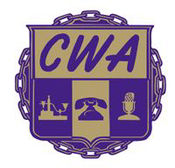Kyle McSlarrow, president of the National Cable & Telecommunications Association (NCTA), a cable industry trade group, wants cable companies to be able to continue experimenting with metered broadband service.
In an interview with Ars Technica, McSlarrow claims broadband pricing experiments aren’t about “gouging” customers or creating even fatter profit margins. Instead, he claims the cable industry just wants to provide Internet access in a way “that’s best for the consumer.”
According to McSlarrow, there’s no particular rush to pick one business model, and the industry has no “grand plan” hashed out by cigar-smoking executives in clubby back rooms. In his view, though, cable needs to do the experiments to make sure that the Internet survives the coming bandwidth apocalypse.
“As demand goes in a certain direction,” he says, “someone’s going to have to build a network” to deal with “not just instantaneous peak but, more importantly, average peak usage. The whole point is to do it in a way, and to serve your customers in a way, that they have a great experience. If you fail on the network side to do that, particularly with our shared network, that’s a real problem.”
McSlarrow himself enjoys flat rate pricing from his Internet service provider, so he’s not a part of any experiment, nor is he willing to defend Time Warner Cable’s recent attempt to launch metered billing in several cities around the country. But, he feels that broadband service doesn’t have to come with a single monthly price for everyone, claiming that the “majority” of broadband customers consume so little, they are basically overpaying to support heavier consumers of bandwidth.
McSlarrow, who has ties to the Republican party, having been the national chairman for Dan Quayle’s failed 2000 presidential bid, and has worked for two Senate Majority Leaders — Sens. Bob Dole and Trent Lott, is a firm believer in free markets, with no government regulation. He also claims the broadband industry is highly competitive, which means market forces will protect consumers from gouging providers.
McSlarrow must have spoken to Ars Technica on Fantasy Island, because that must be where he is living these days. He certainly doesn’t live in Reno, Beaumont, San Antonio, Rochester, Greensboro, or Austin, where AT&T and Time Warner Cable decided to test their paltry Cap ‘n Tier schemes. It’s no surprise he wasn’t willing to defend Time Warner Cable, which tried to launch a Money Party at consumers’ expense. McSlarrow should also know that free market competition without regulation only works when there are competitors — lots of them, offering similar levels of service. That’s not the broadband industry the majority of America lives with today.
Nate Anderson, who penned the piece for Ars, took a skeptical aim at many of McSlarrow’s claims. We’re willing to go further and say they don’t represent reality, period.


 Subscribe
Subscribe



